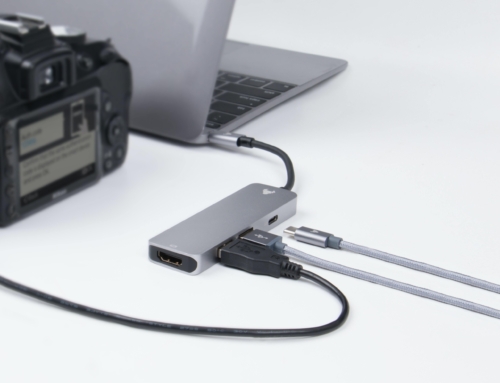Relevant, meaningful, and engaging digital experiences are crucial in today’s ever-dynamic digital landscape. Customers expect a personalized, cohesive digital experience across all devices and channels when engaging with a brand. Unfortunately, most digital experiences today fall short of customer expectations.
This results in marketing technologies seeking to solve different parts of the omnichannel digital experience puzzle. This is where digital experience platforms (DXP) come in.
Digital experience platforms aim to break down these digital experience steps by unifying customer data, content, and applications into a single platform that can be easily managed and delivered through a central interface.
A DXP offers a cohesive, data-driven digital experience that is personalized and relevant to each customer. With the DXP industry projected to register a Compound Annual Growth Rate (CAGR) of 12.07% from 2020 through 2025, and as more brands turn to tap into the power of DXPs to create digital experiences that wow customers, it’s important to understand what a digital experience platform is and what its role is in technology.
What Is a Digital Experience Platform?
With the growing inclination by brands to develop customer-centric digital experiences, digital experience platforms have become the go-to solution for many businesses. A digital experience platform is a comprehensive software solution with an integrated set of tools that helps businesses design, create, manage, and optimize digital customer experiences across multiple touchpoints on their customer journeys. Today, there are 6.5 connected devices per person, with most people using multiple digital devices simultaneously on their buyer’s journey. It’s therefore critical for businesses to have a digital experience platform that helps them manage these digital experiences. Thus, creating seamless customer journeys.
Brands can use this data to personalize the digital customer experience and increase customer engagement. Then, deliver continuous, consistent, and connected digital customer experiences across all digital touchpoints so customers make a purchase. Since DXPs provide the technical foundation for digital transformation initiatives and support the delivery of consistent, engaging digital experiences across channels, touchpoints, and devices, they are critical for businesses to remain competitive in today’s digital age.
What Is the Role of a Digital Experience Platform in Technology?
Digital experience platforms are the key to creating exceptional customer experiences and enabling digital transformation. They are built on a microservices architecture that enables businesses to quickly and easily create, deploy, and manage digital experiences at scale. According to a Salesforce survey, 75% of customers expect consistent, personalized experiences across multiple channels, including social media, IoT, web, mobile, and in-person interactions when interacting with a brand.
Digital experience platforms bridge the gap between customer expectations and digital delivery. Thus, enabling businesses to create experiences that are relevant, consistent, personalized, and engaging. Accomplished this through integrated tools and technologies that provide a single, unified view of the customer journey.
DXP solutions offer a central technological foundation upon which businesses can digitize their customer-facing processes and operations. They also provide the agility and flexibility needed to quickly adapt to changing customer demands and expectations through the entire customer life cycle spanning across different digital channels.
Importance of Digital Experience Platforms
DXPs help brands optimize and deliver orchestrated digital experiences to customers and prospects as a consolidated set of technologies. Today, they focus on cross-channel digital marketing, digital commerce, content management, and digital asset management.
According to a Gartner survey, through 2024, organizations with an established and scalable multi-experience strategy will outpace their competition in customer experience satisfaction metrics, giving them an edge in customer acquisition and retention by 25% for both CX and EX. So, why should brands invest in digital experience platforms?
1. Improved Personalization and Customer Experiences
Consumers have access to a plethora of alternatives these days. Thus, it’s only natural they would gravitate towards brands offering them the best digital experiences. In fact, 86% of buyers are willing to pay more for a better customer experience, and personalization plays a significant role.
Digital experience platforms allow brands to deliver highly personalized experiences at scale by integrating with other customer engagement systems like CRMs, social media platforms, and data management platforms. This way, brands can gather customer data from various touchpoints and create personalized digital experiences. Then, they meet the customer’s needs and expectations by identifying and addressing their pain points.
2. Enhanced Digital Transformation Initiatives
A digital experience platform can be a powerful tool for digital transformation initiatives. Indeed, it’s built on microservices architecture. This means that it easily integrates with a company’s existing systems.
The microservices architecture also makes it possible for organizations to make changes to their digital experiences quickly and easily without going through a lengthy and costly development process. This enables brands to evolve through a digital transformation faster and keep up with the ever-changing digital landscape.
3. Rich End-User Experience Through Touchpoint Optimization
Customization and digital experience go hand-in-hand. For a brand to offer a truly personalized digital experience, they must consider each touchpoint along the customer journey and optimize accordingly. A digital experience platform helps brands do just that by deploying data analytics. Thus, utilizing the power of trend analysis to track customer behavior across digital channels. This way, brands can identify which touchpoints have the biggest impact on customer experience and take necessary measures to optimize them.
Which Tech Jobs Might Involve Working With a DXP?

Working with digital experience platforms can involve a wide range of tech jobs. This includes digital marketing and web development and data analytics and UX design. Here are some examples of tech jobs that might involve working with digital experience platforms:
- Digital Marketing Manager: A digital marketing manager is responsible for planning, executing, and managing digital marketing campaigns that promote a brand or product. In many cases, a digital marketing manager works with a digital experience platform to create and deliver personalized digital experiences to customers.
- Web Developer: A web developer is responsible for the coding, design, and layout of a website. Web developers will use a DXP to create and manage the digital experiences for a brand’s website.
- Data Analyst: Data analysts are responsible for collecting, analyzing, and reporting on data used to improve business decision-making. Mostly, a data analyst uses a digital experience platform to collect and analyze customer data. Then, improves the digital experiences delivered to customers.
- UX Designer: Tasked with creating digital experiences that are both useful and enjoyable, a UX designer will use a digital experience platform to design and build digital experiences that meet customers’ needs.
Key Takeaway
Digital experience platforms have become a necessary tool for brands that want to stay ahead of today’s digital age competition. By personalizing digital experiences and enhancing digital transformation initiatives, brands keep up with the ever-changing digital landscape. To gain a competitive edge, you can learn the tech skills to work with DXPs through training. When you’re ready to begin the journey and new career, Woz Partners are here to help you get started.
With many different training and apprenticeship options and partners in various industries, you can start your journey to a career in tech now! Contact us today at (833) 228 7589 to begin.





